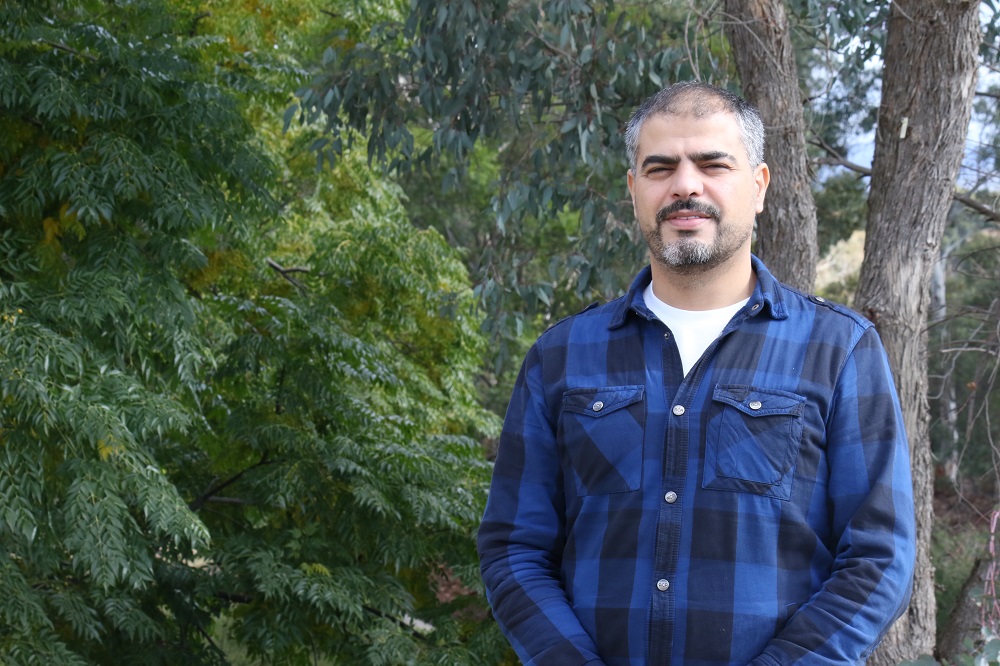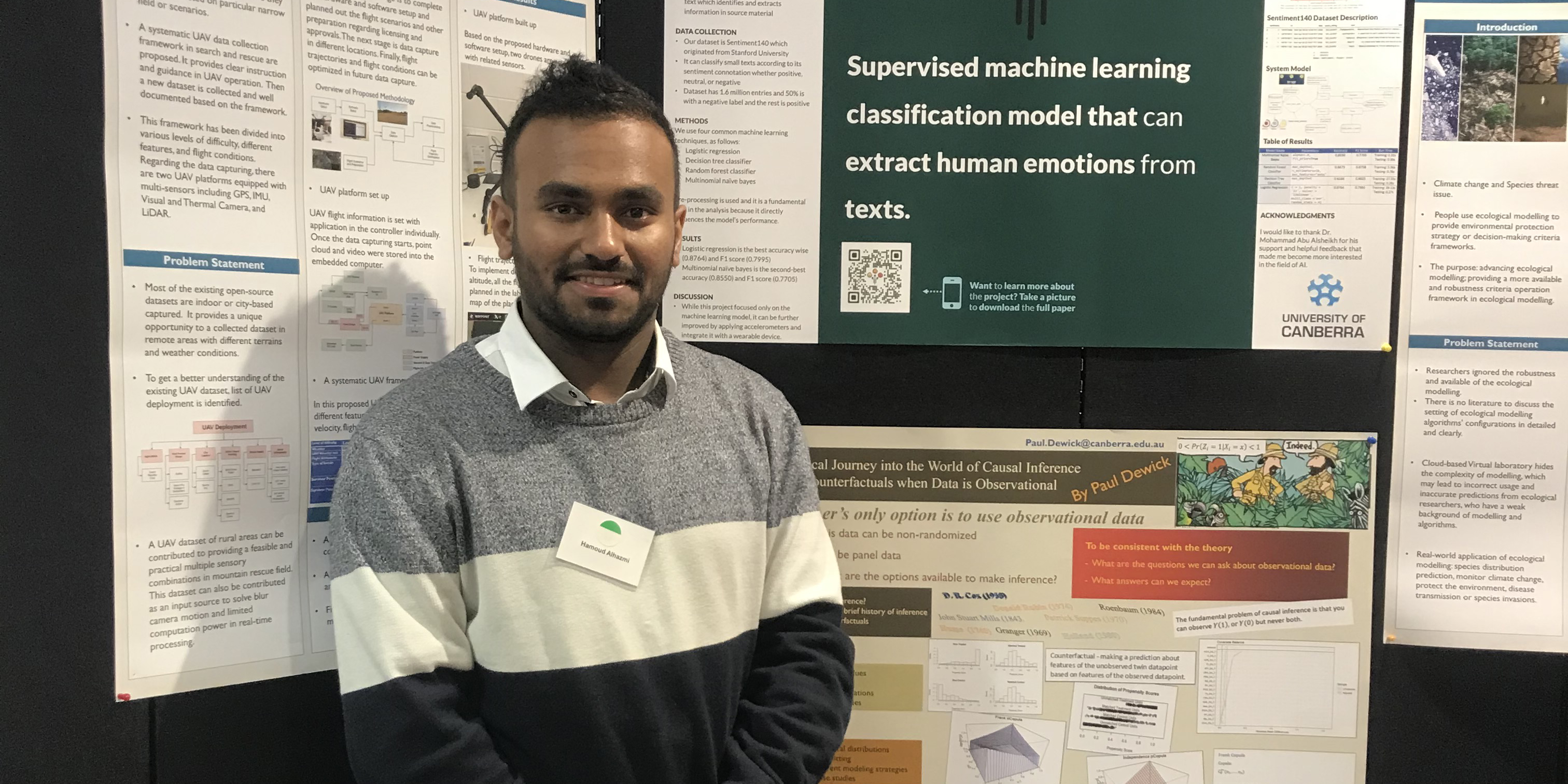Community Connections
Reflections at Ramadan
Fasting from dawn to dusk in solidarity with the poor, Muslims observing the holy month of Ramadan are driven both by a sense of community, and the spirit of reflexivity.
This month is ordinarily a time for self-denial and reflection, punctuated by the gathering of loved ones and friends to enjoy iftar – the evening meal to break the fast or sahur, the pre-dawn meal.
This (challenging) year, community spirit and self-reflection are both transmuted and amplified by the realities of the COVID-19 pandemic – as staying home, and staying apart, has become an act of love for the community.
President of the UC Muslim Student and Staff Association (MSSA), Tariq Alzyadat had been keeping an eye on how the pandemic situation unfolded in his home country of Jordan for some months, as had many other international students and migrants.
“So I guess I was kind of prepared, because Jordan went into total lockdown before any restrictions were put into place in Australia,” the PhD student says. “Noone could even go out on the street there.
“Nonetheless, it has been a strange time for all of us. Ramadan has always been about family and community – it’s tricky when you have something like this, the soul of which is people – but then you have to somehow observe it without the people!”
While adjustment was needed, the more gradual progression of restrictions in Australia made it a little easier, says Tariq.
“Before Ramadan started – and before the restrictions were even put in place – we stopped our customary Friday prayer gatherings and started individual prayers,” says Tariq. “This was on the advice of Muslim scholars across Australia – it was what was needed to keep people safe and well. That too, went some way to prepare us for what to expect during Ramadan.”
Technology has also enabled new ways of doing things. “My brother-in-law, who lives in Perth, used to give the speech at the Friday prayers there,” says Tariq. “Now, he does it from his home, via Zoom!”
Previous years have seen the Muslim community at UC come together at regular iftar events, sponsored by generous donors.
“A week before Ramadan, a sponsor from last year contacted me and said he would like to sponsor iftar for us one night a week this year too,” says Tariq. “When he heard that we would not be gathering, he said that he would be happy to provide the food, and we could eat together … apart.”
Another student started a chat group for about 40 of the Muslim students who had been unable to return to their home countries, and Tariq oversees the distribution of these food packs one night a week.
“We meet outdoors, everyone collects their box of food and goes home to break the fast – we may not be eating together, but it still provides a sense of connection. That’s particularly important for international students away from their families and friends.”
For Bachelor of Engineering in Network and Software Engineering (Honours) student Hamoud Alhazmi, this has been a challenging Ramadan in more than one way – but he’s keeping his spirits up.
“Ramadan teaches us how to be patient and resilient, to not give up,” he says. “I think everyone will face many challenges in our lives – this pandemic is just the one we are facing right now. How we overcome it will impact who we are, and who we become.”
Originally from Saudi Arabia, Hamoud’s thoughts have been with his mother and the rest of his family, and how they are coping with the pandemic there.
“It has also been a bit more challenging to fast with assignment deadlines and exams looming – ” he says. “And also, I work at a service station, so I was quite worried about having such a public-facing job.”
But, Hamoud says, he has been very reassured by how Australia has handled the pandemic.
“And I talk to my mum every day,” he says. “I’m trying to be as positive and productive as I can, to wash my hands and not overthink things!
With ACT restrictions now easing, small gatherings of less than 10 people may yet be possible.
This has meant that Hamoud has been able to see his sister, who is studying for her PhD at the Australian National University, a couple of times – but the bulk of the holy month has already been spent in solitary observance of the fast, and the expectation is that its culminative celebration, Eid-al-Fitr, will also be quiet.
“Even with the ease in restrictions, the Eid prayer is traditionally a large group gathering and I don’t think people will risk that,” says Tariq. “For many international students, Eid is quite low-key anyway, because we are not with our families.”
He plans to continue practising caution and social distancing.
“This pandemic is a real and serious thing, so making adjustments from religious, habitual or social perspectives is just a case of thinking about what we need to do for the good of everyone.
“It can be stressful, but self-reflection and positivity can go a long way towards alleviating that stress and supporting our metal health and wellbeing. This is the first time in my life that I have stayed home this way and just taken the time to sit with myself and think about things.”
“This is the perfect time to get to know ourselves better, and to strengthen our spirits and skills,” says Hamoud.
It’s a situation that reflects some of the deeper meanings of Ramadan, he thinks – building solidarity, facing something like this together.
The nuances of the experience differ from person to person, but it is an experience we all have a share in.
Words by Suzanne Lazaroo, photos: provided and Madeleine Wood.